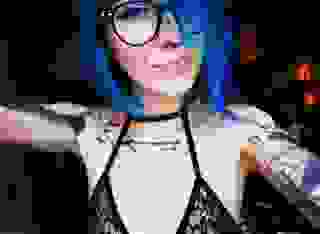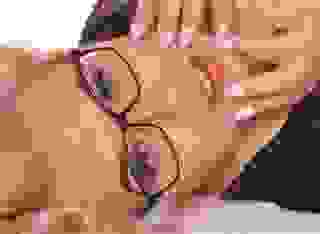Note: You can change font size, font face, and turn on dark mode by clicking the "A" icon tab in the Story Info Box.
You can temporarily switch back to a Classic Literotica® experience during our ongoing public Beta testing. Please consider leaving feedback on issues you experience or suggest improvements.
Click hereWe rode back to the hotel relaxed, avoiding the pedestrians still out walking around, going to have a look at the Fenn, parked on the opposite side of the river and lit up by giant floodlights. She wasn't much to look at, just shipping containers with what looked like oil drums, but she'd gotten the job done.
There were reporters at the hotel, still. Per the Dana-PR, we needed to stop once per trip (either outbound or inbound) and answer a few questions. If we didn't, they'd start making up quotes from us and we'd be in bigger trouble. Plus, she said, it'd take the pressure off the reporters, and we'd need that at some point, she said. She didn't know when, but eventually there would be a story where we'd need goodwill from reporters.
So, we stopped as we got out and stood there to take some questions. LOTS of cameras flashed and dazzled us.
"How was the party?": "The Prime Minister and his wife Sophie are gracious hosts, and the residence is really beautiful."
"Who was there?": "Several cabinet ministers and their spouses. Very, very nice people. Smart, engaging. Fun, even. We had an interesting dinner conversation."
"What did you talk about?": "They wanted to know what being up in space was like. I said it was a lot like Canada -- at first it looks empty, then you see how truly beautiful it is, and that's even before you meet the wonderful people there." Yes, this was a line I'd prepared ahead of time. Corny, but it would get airtime
"What are your plans next?": "We are working on patent filings, I think. Someone has a schedule. It all made sense, but days are going to be pretty busy for a while so it's hard to describe any one thing."
Of Ellen, "Are you keeping busy, too?": "Yes, Kevin has asked me to review some engineering diagrams, and just getting into both the tech and the science is daunting but really fun."
Of Ellen: "How is it working with someone that might be a romantic interest?": I laughed a little, but she just smiled and dodged the question. She said, "What I really love is diff-eq - differential equations - and linear algebra, so some of the math is both fun and familiar. Catching up with his level in the physics may take a while. He's explaining things well, though."
We called it a night after that, and went upstairs to our suite, saying goodnight to LT.
LT had been polite and classy, I respected that ability since sometimes I knew I lacked it.
As we walked in, I had an idea. "Ellen, say... what mixed drinks do you like?"
She looked at me with one raised eyebrow, like it was a 'wanna get you drunk' question. Dryly, she said, "Margaritas, mostly. Sometimes a daiquiri."
I walked over and regarded our suite's bar. "This is fully stocked. But, I have no idea what to drink. The people tonight? Some of them had 7-and-7's, and one lady had a colada. I've... Never had those."
It dawned on her why I was asking - I was curious. She got a bright smile and went over to the house phone we used to call the manager. After the hello's, she aside, "Can you please send us up a bartender? Maybe, someone who knows lots of drinks... No, no preference... Oh, fine, if there's a woman, that'd be good. I don't want to start rumors."
She looked at me, "5 minutes. Want to change?"
I thought, "I'll lose the suit coat at least. Oh, and I should tell LT." I walked over and knocked our pre-arranged duck-in nock, and told him a bartender was coming up.
Ellen took off her shoes and relaxed, falling back from being seated on the couch's arm, her legs in the air but the poofy dress not revealing anything. I actually was glad of that, with someone coming.
I laughed and said it was too soon for that, the drinks weren't ready yet.
We chatted about the people we'd met and waited.
A couple of minutes later, there was a knock on the door, then right in walked an older lady, maybe in her 50's. She had a nice smile, and was wearing a jacket with the hotel's logo. "You asked for a bartender? I'm Bea. Bea Temenistros."
Ellen said, awkwardly from the couch and unable to see her, "Yeahhhhrrrp... Hi! Good to... Uh... meet you?" She laughed and tried to get up. "We did call down. Thank you for coming."
I went over and assisted. The dress was constraining her movement, I think, but we got her up.
Walking over to the bar where Bea was taking a view of what she had to work with, I tried to explain. "I called down because... I'm not... I don't go to bars much? I thought, maybe, you could give us an overview of the most popular drinks? So,... maybe, some post-it notes so we can remember the names, then you make us up two of each of the most popular drinks, and put the glass on a post-it with the name. We'll sort it out, what we like, or not. We just don't know what drinks we like." I was speaking for Ellen, but she didn't object.
She got a broad smile, "Of course! That's sounds great. I'll get started."
As Bea worked, we introduced ourselves more. She had kids in high school, and she said they'd be overjoyed to hear she'd met us. We took some pics with her to help that process, while I still had my suit jacket on, but I quickly removed it, along with my shoes.
After a while, she had a huge bunch of glasses set out, emptying the bar's first cabinet and requiring her to open a nearby cabinet with a huge variety of bar and stemware.
We got a good education in types of drinks, including where they came from.
She described the drink bases - vodka/potatoes, rum/sugarcane, whiskey/corn, gin/juniper, wine/grapes, tequila/agave, beer/barley, and fruit-tree brandies. Going from there, she talked about the steps required for each type, which mostly were simplistically getting sweet stuff and letting it ferment.
She also poured a bunch of fruity things -- additives like bitters, schnapps, syrup, citrus, fruit juices, etc. -- and I got to decide what I liked there.
The more esoteric stuff like Drambuie, she pointed out how if we had fats, like in Bailey's cream, some of the flavors were fat-soluble - like coffee - so they literally tasted different with the cream in them.
We didn't have that much more than a tiny sip of any of the drinks, and put post-it notes up on a mirror with things liked and not-liked.
After a couple of hours of sipping and talking, and Bea telling bartender stories about crazy customers, we bade her goodnight.
I wondered what we should do next. Ellen made the decision without saying anything, and we went back in and sat on the couch and kissed a while.
They were very nice kisses.
I thought there might be an opportunity to... do more, shall we say... but we talked a little about it and she didn't want to go too fast. With enough stress in our lives we should just have fun together and see if we really actually liked each other once we were more 'normal'.
She was so much more astute than me about relationship stuff, I just went with it.
== ==
Chapter: Lifting Heavy
The next five months passed very quickly, given what was happening in my life. I'll summarize as best I can.
After talking with public policy people from the Green Party in Canada and various other places, I got the lawyers to write into the patent terms more favorable terms if the country that item was made in had favorable greenhouse gas and biodiversity policies. It wasn't much, only about 5% reduction in fees (15% of the reactor purchase, maintenance, and operating costs were paid as royalties).
That single change pushed national marine reserves and international marine sanctuaries into existence across the planet, and started the idea of enforcement in them (a clause in the patent terms).
A steady income stream from my royalties paid for science and engineering development to create fish farms that didn't suffer from 'fish lice' that typically infest them. It turned out the big factor was enclosed volume, and expanding that volume by 10x pushed lice problems down to negligible levels. Fish could be trained to come to the surface when there was a specific 'beep' pattern, to eat dispensed food, and then they could descend to the depths and swim around, spawn into hatcheries hanging deep in the water column, and generally just be fish.
That was the preliminary result, at least.
With some of my newfound wealth, I bought an established aircraft manufacturer, Bombardier, and renamed it BardSpace, or just Bard, since it got famous enough that everyone knew what we did. Most of the engineering teams I left in place, but that meant moving to suburban Quebec City, where I had some MBAs work to create an R&D campus.
One of my sets of hires was geologists. They were available in the fast-fading oil sector, and combined with some astrophysicists, I started converting them into prospectors. The office park I took over was near some vacant land and abandoned factories, so my (former Astronaut) CEO created an astronaut training program to get the geologists trained in celestial navigation, physical fitness regimens, and working with all manner of other engineers on useful remote sensing gear.
Everyone had to know how to weld. It was going to be a survival skill.
The machine shops were running 24x7 making prototypes of my new craft, hand-in-hand with the engineers that designed the craft. The robotics operators set up lines to build the components, but we mostly bought the robots from someone else, that was esoteric as a product and we couldn't compete with the big players, one of whom made electric cars and had lots of expertise in machine learning and task specification.
As a famous guy once said: Building one thing isn't bad, but building a machine that builds the thing, that's 100x harder.
Our first craft was powered by a set of 4 brand-new Raytheon Li7R Reactors. Each made 750 megawatts, bigger than mine for sure. At full output, they'd need cooling systems, but the MHD drives (built in-house) couldn't handle that much power anyway.
The Elm, our first ship, wasn't that pretty. It was a single shipping container shape, but scaled up to be 10 meters tall and wide, and about 40 meters long. The body itself was double-hulled and had a bunch of interior partitions to prevent a leak from impacting any other part of the ship. The top had a lattice that held the engines, each of which could rotate on an articulation to be fully aimable, and to move down so it was pushing from underneath or pulling from the top.
Pulling from the top is great for hovering, but for aiming a rocket, you need to push from the bottom, it's a famous engineering physics thing.
As a box, the craft was big, but we'd made it from stainless steel and thus was simple to weld together. Portholes of AlON bulletproof 'glass' dotted the sides so we could see out, and there was an ample cargo bay to retrieve misbehaving satellites (since that was what we figured one of our first businesses would be). We couldn't pressurize the bay, but that was fine, that seemed a solution in search of a question.
Happily, it even included the ability to go into a spin, and a toilet that would work in a quarter gravity. The backup was a replica of the ISS zero-g-toilet (a work of engineering genius). Mostly we wanted to go normally.
Not wanting to risk myself on the first flight, I sent off our test pilots and wished I could be with them. Technically, I could have gone, but, hey, you can't do everything, and I had my hands full since Ellen had just gotten pregnant and wanted me around the house on a regular schedule.
We weren't married, but my thoughts on that weren't the most primary. She wanted to not be, to start with, so I went with it.
The first mission was a checkout one, going to orbit and back. Along the way, to have some ballast and use up some space in the hold, we brought up a set of modules that had previously been built for the ISS but not flown for whatever short-sighted budgetary reason they had.
This time, NASA and ESA approved the flight, and our actual retired-astronaut pilots had practiced 'the dance' to dock.
I should note that when the Elmhurst (all the Elm ships started with the letters e-l-m) docked with the station, it instantly multiplied the station's volume by 10x. It was a big ship, for sure. It could be big because if you don't have to worry about going fast, you can have as large a ship as you want -- so we did. The cost constraints were really only the price of 301-stainless steel and aircraft aluminum (for interior structure), which is to say only a couple of million bucks.
The docking, hand-off, and delivery went well, so we started bringing up material for our own rotating space station, and testing on-orbit snap-together assembly.
The Elmwing and Elmjack trained and tested crews, and more and more specialized instruments got bolted onto the gantry the engines hung on. We lost an engine on re-entry from an instrument flying off and breaking a supply cable, but that event actually made us more confident because the layers of safety systems kicked in and we landed without incident.
I wanted to go to the moon.
The problem was, computations proved that the exhaust velocity of our engines would kick up dust and put it in orbit around the moon. This would then punch holes in our later craft, and we'd be hosed.
We also were facing the prospect of horribly sharp dust grains that were hell on moving parts and spacesuit seals.
The engine velocity problem was solved with some incredibly oversized sparse framework landing legs, and the dust (at least underfoot next to the ship) solution came from a fan.
She'd suggested dropping a giant exploding thinly-viscous beach-ball of goo. The ball would drop, go splat, and cover a large area, and harden slowly. We could then set down on a mostly hard surface, as long as the landing legs kept us level.
Creating spacesuits for a crew of 30 isn't easy. Only ten would be on EVA at once, armed with geological hammers, microscopes, and wide-stance fat-tired folding tricycles to get from one place to another.
The question was, who was going to be the first person to step off our craft? I wanted that!
Convincing Ellen wasn't easy. She decided, even though she was only 3 months along, she wouldn't risk the baby's health with cosmic-ray radiation. I donated sperm several times to ensure I had a good supply, just in case, and we set out. We went in two ships, with one as backup that would stay in orbit just in case, with supplies and spare parts in case we needed something.
The ship handled like a dream on the way up through the atmosphere (I hadn't ridden before), with minimal wind noise, very few bangs, and avionics that were a lot more polished than the ones I had dealt with. I was aboard the Elmwing.
We didn't announce our departure until we were in orbit (officially) but everyone knew since someone in the factory or on the launch teams leaked the news. Turning on the cameras, we gave regular reports, some rough minor mission plans, and settled in for a ride.
We got to lunar orbit about 14 hours after launch, and descended after only 3 orbits, just making sure our position was right so we'd come down where we wanted to.
Down we came, dropping our goo and waiting for the next orbit, then landing on the hard-goo field.
The landing struts broke through the goo, but it wasn't that important. It was certainly hard enough to withstand our walking around on it.
I was suited up by then, and, televised to the world, stepped out on an actual gangplank ramp extended from the side of the ship, that being the lowest-risk way to get down. We had extension ladders from Ace Hardware, too, but, hey, belt and suspenders when it comes to space.
Ellen had given me the right words.
"We journey to discover and grow, extending the fertile minds of humankind."
After I said that, I said, "We come in the spirit of exploration and commerce, scientific inquiry and betterment of the human condition."
My lawyers told me I was standing on good footing, and I'd given the PM and the US President a heads-up about this, but it was still a big question about how the general public would receive what I was about to say.
I continued, speaking to a camera and lit inside my suit helmet so I could be seen:
"Although I don't want to be controversial about this, I hereby assert a claim. That is, effective with our landing, we establish an area of land from this point [I had pounded in a long marker rod with a hammer] out to a radius of one single kilometer from where I am standing, is now the property of, and sovereign territory of, the nation of Canada. In the spirit of mutual cooperation, I would like to suggest the United Nations establish a 'land office', wherein such claims can be registered and certifications made regarding legal claims, surveying, placement of survey monuments or benchmarks, improvements, buildings or structures, occupation, etc. Until such time as that office is established, we shall await their judgment. At all times, we will strive to peacefully cooperate with any persons wishing to visit this place."
With that, I called out the landing party's ground-operations commander, and she came out. We bounced around a little, planting a more permanent Canadian flag, driving a large spike into the regolith near where my feet had been as I spoke, and generally getting things ready.
The feeling of jumping in 1/6 gravity is very liberating, but you discover that it still takes strength when you land to slow yourself down. Inertia doesn't change even if weight does.
Unloading the bicycles, various experiments, and communications antennae took most of the remaining hours of our local "day", Quebec time.
Once the unloading was partially done, they got out the inflatable shelter. This was a tall-wheeled cart with tires that inflated after we got it out of storage. As a cart it looked massive and ungainly because it would have been on Earth, but on the moon the gravity was far less and it rolled with ease.
We'd charted the shelter to be 200 meters from the launch site in case we kicked up debris on takeoff, we didn't want to damage it. This seemed unlikely since it was made from 11 layers of Kevlar with alternating layers of a thin-flowing foaming epoxy resin and hardener so that if any puncture happened, it would immediately seal itself harder than the original fabric. We'd tested it both in atmosphere and in vacuum and the 'disaster' results were impressive -- sticky, messy, but safe, which was Exactly Right..
Camera stands recorded all our grunting. I'd hired a set of broadcast crews and, owning the livestream, sold advertising rights on it. Some percentage of ads had to be informational 30-second-max ads about government transparency, environmental issues, expanding and guaranteeing voting rights, and other liberal causes. If you own the TV station, you can air whatever ads you want to, I figured.
The revenue stream for commercial ads fed right into a foundation I'd set up for funding many of these causes, so there was no financial incentive on anyone's part to take risks to get a better camera angle.
The massive inflatable shelter was more of a 50-meter long Quonset bouncy-house, only sealable as a shelter once it was inflated. The truck-sized airlock had to have a floor installed, but we really wanted brick for all of that and it would take experimentation.
It was a very long day. Most of the teams took 4-hour shifts, half to get suited, 3 outside, half to get unsuited, rest, eat, 8 hours off, and repeat. They slept when they could, and I kept up alongside them, walking around and asking questions when it looked okay to do that. I didn't want to get in the way. Most of them were engineers or scientists, running some experiment or other, setting up support equipment, etc.
Coming back in, we'd anticipated the lunar dust problems, but our solutions sucked. First, we tried blowers, but that put all the finest particulates into the air and the filters had a hard time with it. We tracked the dust in, and soon the whole ship had a fine coat of dust, up and down the corridors, on the walls, over the lenses on the cameras and fine equipment, there was no getting away from it.








